Population Horizon and Science Monitoring in the 33rd Assembly of the National Research Institutes of Iran
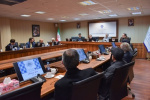
The 33rd session of the Assembly of National Research Institutes of the country was hosted by the Institute of Cultural, Social and Civilization Studies of the Ministry of Science, Research and Technology.
As reported by the Public Relations Office of SSRII and the Institute for Cultural, Social and Civilization Studies, Dr. Ali-Baqer Taheri-Nia, Deputy Minister of Science, President of the Institute for Research and Planning in Higher Education, and Secretary of the National Research Institutes Assembly, presided over a pivotal session aimed at fostering inter-institutional synergies and addressing systemic challenges within the nation’s research landscape. Opening Address: A Vision for Collective Progress Dr. Taheri-Nia emphasized the strategic importance of these monthly summits, describing them as platforms for sharing institutional achievements and addressing critical issues such as budgetary constraints, regulatory reforms, and administrative efficiency. He remarked, “These sessions serve as a vital mechanism for aligning research objectives and exchanging insights on topics such as recruitment frameworks and funding policies. For instance, significant strides have been made in revising employment guidelines, ensuring they reflect the evolving needs of academia.” Highlighting the recent visit of the President to the National Research Achievements Exhibition, Dr. Taheri-Nia noted the government’s concerns about the nation’s higher education system, including the burgeoning number of universities, the employability of graduates, and the alignment of academic output with labor market demands. Key Themes and Institutional Updates:
Enhancing Faculty Efficiency and Equity Dr. Ahmad Shabani, President of the Iranian Research Institute of Chemistry and Chemical Engineering, identified the recalibration of faculty workload as a landmark achievement of the assembly. He also raised critical issues related to the privatization of higher education, stating, “Approximately 80% of our students finance their education through tuition, effectively rendering our universities quasi-private. Without structured pathways for graduate employment, we risk exacerbating socio-economic disparities.” Drawing comparisons with global standards, Dr. Shabani advocated for increased investment in higher education, asserting, “A nation’s intellectual capital is its greatest asset. Ideally, universal access to tertiary education should be a national priority.”
Advancing Cultural and Social Research in Higher Education Dr. Saeed Ghiathi, President of the Institute for Cultural, Social and Civilization Studies, offered an in-depth overview of his institute’s contributions, including its structural organization, strategic focus areas, and scholarly output. He highlighted its establishment as a key institution in 2003, with a mission to analyze the cultural and social dimensions of higher education in Iran. The institute, comprising 45 faculty members, is structured into three specialized research centers—Culture Studies, Science and Technology Studies, and Civilization Studies—with nine sub-groups focusing on interdisciplinary fields such as governance, Islamic civilization, and digital transformations. Dr. Ghiathi underscored the institute’s publishing prowess, stating, “Our publishing house is one of our defining strengths, with over 500 authoritative texts on higher education. This robust publication strategy not only disseminates knowledge but also shapes the academic discourse on critical societal issues.”
Research Contracts and Strategic Partnerships Highlighting a significant expansion in research collaborations, Dr. Ghiathi reported a 150% increase in externally funded projects since 2021. The institute secured 15 contracts worth 5.7 billion tomans in 2023 alone, with ongoing efforts to establish deeper partnerships with governmental and non-governmental organizations. He also announced the launch of specialized task forces on cutting-edge themes such as artificial intelligence, migration, and cognitive sciences, including the inauguration of a National AI Consortium aimed at fostering interdisciplinary innovation.
Social Responsibility and Knowledge Dissemination Dr. Ghiathi identified social responsibility as a cornerstone of the institute’s mission, detailing initiatives such as: • 80 thematic seminars addressing societal challenges and generating actionable policy recommendations. • Three waves of national surveys on student values and attitudes conducted in collaboration with the Ministry of Youth and Sports. • 10 promotional academic chairs fostering dialogue on critical topics such as university-community engagement. Farabi International Festival: A Beacon for Humanities Excellence One of the session’s highlights was the presentation on the Farabi International Festival, a flagship event recognizing exceptional achievements in humanities and social sciences. Dr. Ghiathi outlined the festival’s rigorous evaluation process, which this year attracted 2,585 submissions across 16 academic disciplines. Award categories spanned five formats—books, doctoral dissertations, master’s theses, research articles, and comprehensive reports. In the international section, accolades included recognition for prominent Islamic and Iranian studies scholars and the conferral of the Peace and Friendship Award to an American academic for their advocacy for Palestinian rights. Population Trends: Addressing the Demographic Crossroads Dr. Mohammad Javad Mahmoudi, President of the National Research Institute for Science Policy, delivered a thought-provoking analysis of Iran’s demographic trajectory, critiquing the Stanford University report on population trends. He underscored the urgency of reversing declining birth rates to mitigate the risks of an aging population. “The only viable solution to this demographic crisis is to increase fertility rates to at least 2.5 or 3 children per family. Failure to act will result in a population where 42% are elderly by mid-century,” he warned. Strengthening Scientific Monitoring and Policy Alignment
Dr. Mohammad Hassan-Zadeh, President of the Iranian Research Institute for Information Science and Technology, concluded the session by advocating for the institutionalization of a National Science Observatory to monitor and align scientific advancements with national priorities. He emphasized the need for actionable insights, stating, “Research findings must transcend academic circles and inform policymaking at the highest levels. Establishing a unified data dashboard across research institutes would significantly enhance our ability to address pressing national challenges.” A Unified Vision for Iran’s Research Ecosystem The assembly underscored the critical role of national research institutes in driving evidence-based policymaking, fostering interdisciplinary collaboration, and addressing systemic challenges in higher education and research. By consolidating efforts across institutions, the assembly aims to position Iran as a leader in scientific innovation, cultural resilience, and socio-economic development.

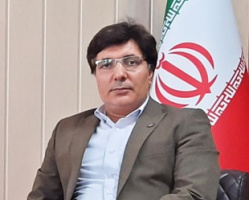
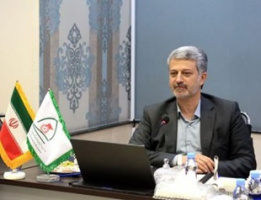
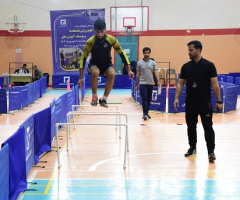
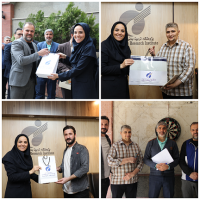
Your Comment :